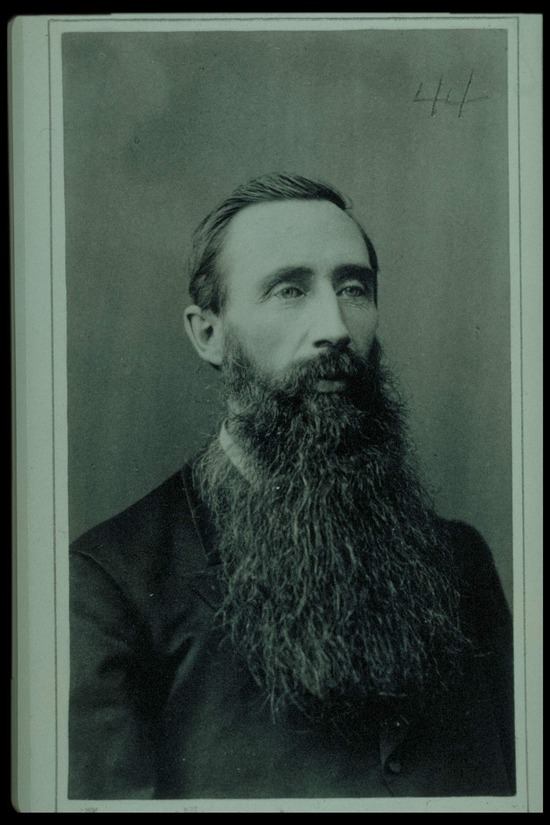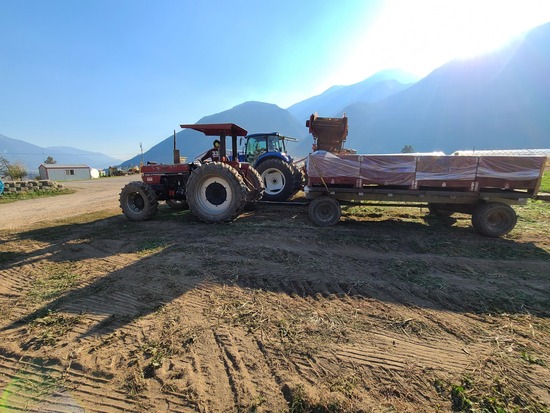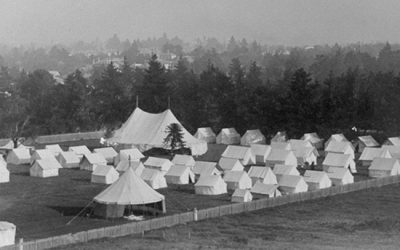Adventist academies are high schools (grades 9-12) that are owned and operated by the Seventh-day Adventist Church.
While some 9-12 academies are also associated with a nearby Adventist elementary school (K-6) or junior academy (K-8), many are stand-alone secondary school campuses.
It’s also common for an Adventist academy to be a boarding school, where students live on campus during the school year.
Like any school, Adventist academies focus on high-quality education. But beyond that, there’s a significant emphasis on spiritual enrichment and education as well. And not only in Bible classes, but by learning about all subjects from a Christian perspective.
This complements one of Adventist Education’s overall goals—to educate the “whole” person. This means not only emphasizing mental development, but promoting physical and spiritual well-being within the educational environment and curriculum.
But how did this school system begin? And what does this type of education look like on a campus full of teenagers?
To find out, we’ll cover:
- The origin of Adventist academies
- The philosophy of our schools
- What Adventist academies have to offer
- How to find an academy near you
To get the full perspective, let’s look at how things began.

Goodloe Harper Bell
The origin of Adventist academies
While Adventist elementary schools were already in operation since 1853, the first Adventist secondary school was established in 1872 in Battle Creek, Michigan. It started out as Battle Creek Industrial Academy, later becoming simply “Battle Creek Academy” (BCA).
It was established at the urging of Edson White and his mother, Adventist Church co-founder Ellen G. White. Many Adventists during that time were looking for a Christian alternative to secular public schooling.
BCA’s first classes were held in the print shop of the Review and Herald Publishing House. It was also led by a single teacher, Goodloe Harper Bell.1
But even with its humble beginnings, BCA grew into the first secondary school to be sponsored by the General Conference of Seventh-day Adventists.2 And this began the efforts to provide quality Christian education to kids in their high school years.
The Adventist Church would go on to establish more and more schools, many of which would become boarding schools.
With the counsel of Ellen White, many of these boarding schools would be established in rural settings, providing students with a country retreat from the distractions of the cities.3 These campuses also fostered a close-knit community to help students feel safe, loved, and encouraged during their educational journey.
From its humble beginning in Battle Creek, Michigan, the Adventist education system continued to expand, establishing schools in Brazil, India, Canada, Australia, Kenya, and several other countries.4
As of December 2021, there were more than 2,731 Adventist academies across the globe.5
And today, the Adventist school system is the largest Protestant school system in the world.6
The philosophy of education for Adventist academies
As mentioned, Adventist Education in general focuses on providing a high-quality, well-rounded education, going beyond book learning. At Adventist academies, faculty and staff want more for each student than to simply pass their classes and meet graduate requirements. The goal is to prepare each student for the life ahead of them.
The Education Department of the General Conference of Seventh-day Adventists sums it up like this:
“Education should be redemptive in nature, for the purpose of restoring human beings to the image of God, our Creator. Mental, physical, social, and spiritual health, intellectual growth, and service to humanity form a core of values that are essential aspects of the Adventist education philosophy.”7
Exceeding the standards
First and foremost, as a school, Adventist academies make sure that the quality of education meets the relevant needs of high school students. To help ensure that each school is operating as it should, the Adventist Church requires its schools to maintain accreditation.
Each academy must seek accreditation through local official accrediting entities, as well as the Adventist Accrediting Association (AAA). And the latter only offers its seal of approval to schools that have already reached government accreditation standards.8 In addition, however, AAA focuses on evaluating how closely each campus adheres to the standards of the Adventist Church.9
(This report provides a full list of accredited Adventist academies).
Preparing students for life outside of the classroom
The need for a well-rounded educational experience was emphasized from the very beginnings of the Adventist Educational System:
“True education means more than the perusal of a certain course of study. … It has to do with the whole being, and with the whole period of existence possible to man. It is the harmonious development of the physical, the mental, and the spiritual powers. It prepares the student for the joy of service in this world and for the higher joy of wider service in the world to come.”10
While subject mastery is a priority, it’s not the only one. Each academy finds several ways to connect students to the community and promote practical skills.
A Christ-centered educational environment

Photo by Jeremy McKnight on Unsplash
Students don’t only learn about Jesus Christ or the Bible in religion classes. Adventist academies believe that spiritual health can be promoted in every subject studied and every campus event or activity.11
Walton J. Brown, Ph.D., former director of the General Conference Education Department, emphasizes the fact that:
“Seventh-day Adventist schools endeavor to meet the grand objective of evangelism by striving to maintain a deeply spiritual atmosphere on their campuses and grounds; by placing the Bible and the Biblical worldview at the center of all study, teaching, and activities; by maintaining a high quality of instruction, with emphasis on independent thinking; by developing physical powers through a program of study balanced with useful exercise; by providing the basis for Christian homes; and, above all, by developing a personal commitment of the capacities and strength of youth to the service of God.”12
All in all, the goal of these spiritual programs is to remind students of God’s role in everyday life as our Creator.
What Adventist academies offer
So how do Adventist high school campuses demonstrate this multi-faceted philosophy of education?
High-quality academics
Adventist schools are academically competitive and emphasize proper study habits. Students consistently receive greater-than-average test scores.13
Well-rounded educational experience
With the aspiration to nurture students into helpful members of their communities, Adventist academies offer a variety of electives, activities, clubs, leadership opportunities, and outreach opportunities. Most campuses also offer music and speech/drama programs.
Favorable student-teacher ratio
Smaller classes mean the teachers can be more attentive to each student’s needs.14 When each student feels seen, heard, and valued, it’s correlated with “continued academic and life success.”15
A service-oriented mindset
To help students put their faith and principles into action, most academies encourage students to participate in community service projects, often providing such opportunities and even offering credit for it. This helps bring their educational experience beyond the classroom, teaching them about what it means to be good citizens and follow Jesus’ instruction to care for those in need.
An emphasis on health and well-being
To encourage physical health, Adventist academies typically offer more than just physical education classes. Most campuses have dedicated health classes, and many principles of whole-person health are factored into science lessons, campus activities, and more.
Opportunities to develop trade skills

Some Adventist boarding academies are located in favorable locations for student work programs. Some campuses are on or near a farm, or they have a local business that trains and employs students in that particular trade.16 These can range from auto garages to cabinet shops, organic gardens, print shops, etc.
A close-knit atmosphere and spiritual community
Adventist campuses are usually close to an academy-affiliated Adventist church. This proximity allows students to become a meaningful part of a local church family. This is especially helpful for boarding school academies where students are away from home. Some churches even have a special program where each member “adopts” a student for each school year. They regularly pray for them, send care packages, or offer a listening ear.
Preparation for higher education
Most Academies provide college preparatory courses, or even college-level courses for college credit. Additionally, campuses provide ACT or SAT preparation and testing to help students get ready for applications to colleges and universities.
Information about the cost of private Christian schools
Like any private school, Adventist academies charge tuition and other fees to cover their operating expenses. The total price for attending an Adventist academy will vary based on location, course offerings, or other factors.
Boarding schools will certainly have a higher total cost, because of room and board expenses on top of school supplies and tuition.
But rather than approaching these costs as mere numbers, think of it as an investment in each student’s future. An academy experience can lay the foundation for a growing faith and a strong support network, in addition to a rigorous education.
For those who need financial aid, several options are typically available:
- Tuition assistance provided by constituent Adventist churches
- School-affiliated endowments
- Application-based assistance programs
- Work-study programs
The amount of financial assistance varies depending on the school or what each family qualifies for, but Adventist academies are dedicated to helping this opportunity be available for interested families, regardless of income level.
Why families choose Adventist academies
One of the most common reasons parents and students choose Adventist high schools is because of the strong spiritual foundation they provide.
Val Copaceanu, an alumnus of Shenandoah Valley Academy (SVA), an Adventist academy in New Market, Virginia, describes the experience:
“I appreciated the structure and focus and the level of priority that God had in every class. … Also, the many mission trips we went on, being on the soccer team, the ability to work on campus at a real, industry-type job, and the time that teachers personally took to help me when I needed them or had questions about assignments. …The involvement of the teachers and the love they had for their students and their desires for them to succeed, I think, was especially crucial and priceless.”
Buz Menhardt, MDiv, an associate pastor of the New Market Seventh-day Adventist Church, frequently works with students of Adventist academies because his church is close to the SVA campus.
He also sent his own children to school there when they were growing up.
He believes it helped his sons further their education and career goals. He also thinks it’s helped them build friendships and find good exposure to spiritual activities.
He’s also found that Adventist boarding schools are especially helpful in preparing young people for the future:
“I think boarding schools are very unique. … The really cool feature is that you actually get to live with your friends. You hang out with them, go to school with them, and live life with them. To me, that’s the most powerful aspect of [an] Adventist boarding school education. There’s so much you learn when you’re living with other people.”
He continues:
“I think Adventist boarding education, when it follows an Adventist blueprint…is absolutely amazing.”
Finding an Adventist academy

Photo by Julia M Cameron
When looking for an Adventist academy to attend, there are plenty of options to choose from.
In North America there are more than 1,000 K-12 schools.17 Many academies also have elementary schools nearby, or on the same campus grounds.
Adventist academies welcome students of every worldview and background. You don’t have to be an Adventist to attend an Adventist academy. And it’s easy to find the nearest campus.
For schools in North America, there’s a “find a school” map at adventisteducation.org.
For Adventist academies outside of North America, you can search the following sites based on your region:
- Inter-American Division Schools: This includes schools in Central America and northern parts of South America.
- South American Division Schools: This includes schools in South American countries and several nearby islands.
- Trans-European Division Schools: This includes schools in Eastern Europe.
- Inter-European Division Schools: This includes schools in Western Europe.
- Northern Asia-Pacific Division Schools: This includes schools in countries of northern Asia including Japan, Taiwan, Mongolia, and Korea.
- Southern Asia-Pacific Division Schools: This includes schools in southeast Asia.
- Southern Asia Division Schools: This includes schools in India, Nepal, Bhutan, and the Maldives.
- South Pacific Division Schools: This includes schools in Australia, New Zealand, and several island nations in the Pacific.
- East-Central Africa Division Schools: This includes schools in eastern Africa.
- West-Central Africa Division Schools: This includes schools in western Africa.
- Southern Africa-India Ocean Division Schools: This includes schools in southern Africa.
The worldwide Seventh-day Adventist Church has seen immeasurable value in a caring, safe, high-quality, Christian education. No matter where you are on the globe, you can find the same values and philosophy upheld on each Adventist academy campus.
Interested in learning more about the beginnings of the Adventist educational system?
Adventist Academies Around The World
Wherever you’re located, there may be an Adventist Academy near you! Here’s a short list of Adventist academies around the world.
(To find a complete list, search for high schools, academies, and secondary schools in the Adventist directory.)
North America:
- Crawford Adventist Academy, Pickering, Ontario (Boarding)
- Shenandoah Valley Academy, New Market, Virginia (Boarding)
- Highland Academy, Portland, Tennessee (Boarding)
- Greater New York Academy, Queens, New York
- Pine Tree Academy, Freeport, Maine (Boarding)
- Houston Adventist Academy, Houston, Texas
- Mount Ellis Academy, Bozeman, Montanna (Boarding)
- Spring Valley Academy, Centerville, Ohio
- Lake City Academy, Coeur d’Alene, Idaho (Boarding)
- Loma Linda Academy, Loma Linda, California
- Mountain View Academy, Mountain View, California
- La Sierra Academy, Riverside, California
- Fletcher Academy, Fletcher, North Carolina (Boarding)
- San Diego Academy, National City, California
- Walla Walla Valley Academy, College Place, Washington
South America:
- Parana Adventist Institute, Parana, Entre Ríos, Argentina (Boarding)
- Minas Gerais Adventist Academy, Lavras, MG, Brazil (Boarding)
Africa:
- Karura Seventh-day Adventist Secondary School, Nairobi, Kenya (Boarding)
- Bwasi Secondary School, Mara, Tanzania
Asia:
- Cimindi Adventist Academy, West Java, Indonesia (Boarding)
- Erode Seventh-day Adventist High School, Erode, Tamil Nadu, India
- Honam SahmYook High School, Korea (Boarding)
- Kowloon Sam Yuk Secondary School, Kowloon, Hong Kong, China
Europe:
- Urgell School, Barcelona, Spain
- Adventist Private School, Zürich, Switzerland
- Stanborough School, Watford, Hertfordshire, England (Boarding)
- Schulzentrum Marienhöhe, Darmstadt, Germany (Boarding)
Australia:
- Erickson, Charlotte, “Battle Creek Academy,” Encyclopedia of Seventh-day Adventists, https://encyclopedia.adventist.org/article?id=D8Y3. [↵]
- Ibid. [↵]
- White, G., Ellen, Fundamentals of Christian Education, p. 322. [↵]
- “Adventist Directory: ‘Secondary School’,” https://www.adventistdirectory.org/default.aspx?page=SearchResults&Search=secondary+school&submit=&IDLookup=1. [↵]
- “Seventh-day Adventist Education Statistics,” https://www.adventist.education/education-statistics/. [↵]
- “Adventist Education,” Getting to Know Adventists, https://www.adventhealth.com/sites/default/files/assets/adventist_education_adventist_team_member_series_0.pdf. [↵]
- https://www.adventist.education/about-us/ [↵]
- “Accreditation Handbook,”Adventist Accrediting Association, p.12, https://ted.adventist.org/images/Education/Accreditation_Secondary-TED_2017.pdf. [↵]
- Ibid. [↵]
- White, Ellen G., Education, p. 13. [↵]
- Education, p. 17. [↵]
- Brown, J., Walton, “Adventist Education and the Finishing of the Work,” Adventist World Church, https://www.ministrymagazine.org/archive/1977/02/adventist-education-and-the-finishing-of-the-work. [↵]
- “Academic Performance of Students in Adventist Schools” https://v1.adventisteducation.org/cg3.html. [↵]
- “10 Reasons Adventist Schools Work,” https://v1.adventisteducation.org/10r.html. [↵]
- “Why Class Size Matters” ncte.org/statement/why-class-size-matters. [↵]
- For example, Walla Walla Valley Academy’s Agriculture Program https://www.uccsda.org/walla-walla-valley-academy-agriculture-program. [↵]
- “Education,” Seventh-day Adventist Church North American Division, https://www.nadadventist.org/departments/education. [↵]
More Answers
What Is a Seventh-day Adventist Camp Meeting?
Although camp meetings didn’t begin with the Seventh-day Adventist Church, they’re as much an Adventist thing as haystacks.
Camp meeting is an extended event for Adventists (and non-Adventists) of all ages to gather and participate in spiritual seminars and activities. During the event, attendees often camp in tents, campers, or RVs.
How to Join the Seventh-day Adventist Church
Whether you heard about the Seventh-day Adventist Church through a traveling evangelist, during your online searches, or through a loved one or relative, you might be considering joining yourself.
How Do Adventists Do Baby Dedications?
For Christians, dedication ceremonies for babies, also for older children, are an important time for parents and the church. It’s a special part of the worship service when parents present their young children to God and the church family. Both parents, along with the congregation, regard this as a solemn promise to be a Christ-like example to the child.
Do Adventists Celebrate Communion and Foot Washing?
Like many Christian denominations, Adventists regularly participate in communion, also referred to as the “Lord’s Supper” or the “Last Supper.” They also practice foot washing (John 13:1-20), or the “ordinance of humility,” during the service—which isn’t as common.
What is the Concept of “Present Truth” and Why is it Important?
Present truth is the principle that certain biblical truths are relevant to God’s people at specific times in history. God sends the Holy Spirit to reveal truths that help us better understand how to interpret and apply His Word in a present moment.
Do Seventh-day Adventists Celebrate Easter
Yes, many Seventh-day Adventists do celebrate Easter.
Does the Adventist Church Have Youth Ministry Programs?
The Seventh-day Adventist Church has been organizing and operating youth ministry programs since 1879.
In our opinion, youth ministry is one of the most important ministries a church can have.
Do Adventists Celebrate Birthdays?
Yes, most Seventh-day Adventists do celebrate birthdays because we see them as excellent reminders of the life God has blessed us with. And we celebrate them the same way everyone else does—with friends, family, presents, and a special meal.
What Do Adventists Offer for Young Adults?
In recent years, the age group often classified as “young adults” has been trickier to engage. It’s been a significant concern for Christian churches around the world. Though interestingly enough, similar observations regarding young adults have been coming up in conversations about the economy, the entertainment industry, politics, and more.
Do I Need to be an Adventist to be Saved?
The answer to this question is simply, “no.”
When it comes to salvation in Jesus Christ, all that is required of a person is to acknowledge Jesus’ sacrifice for us, believe that He has saved us, and claim the free gift of salvation that is always available to us. Salvation is not based on denomination.
Do You Have to Be Vegetarian to Be Adventist?
Of course not. Membership in the Seventh-day Adventist Church has never included any dietary requirements. However, there might be some reasons people might think that. So many Adventists are vegetarians or even vegan, and a plant-based lifestyle has many health benefits.
All About Seventh-day Adventist Colporteurs
The Seventh-day Adventist Church uses a variety of methods to spread the hope of the gospel to the world. One of these ways is through colporteuring, also called “canvassing” or “literature evangelism.”
What Is an Adventist Book Center (ABC)?
When you walk into any one of the many Adventist Book Center (ABC) locations, chances are you’ll be greeted by pleasant gospel music in the background, friendly employees, and row after row of Christian books, movies, Bibles, study guides, kids’ games, and more.
Do Seventh-day Adventists Celebrate Holidays?
Wondering whether your Adventist classmate or coworker keeps the same holidays you do? Perhaps you want to include them in some festivities, but you also want to respect their beliefs. Thus, you’re unsure of how to navigate the holiday question. Will they accept your invitation to the office Christmas party?
The Adventist Haystack (It’s Not What You Think) + 4 Recipes
Haystacks are basically a taco salad—with an Adventist spin on it! Most versions are vegetarian and offer an endless combination of tasty toppings. We eat them often because they’re healthy, scrumptious, and easy to make.
Do Seventh-day Adventists Believe in Medical Care?
The Seventh-day Adventist Church believes in and supports evidence-based medical care. In fact, medicine has played a significant part in our history, and today we run a major health system with hospitals, medical schools, and clinics throughout the world.
All about Adventist Elementary Schools
The Seventh-day Adventist Church operates the largest Protestant education system in the world. A big part of this system is our K-8 elementary schools, or primary schools, as they’re known in other parts of the world.
What Are Pathfinder and Adventurer Clubs?
Like the boy or girl scouts, Pathfinders and Adventurers learn about nature and life skills. But what makes these clubs special is their purpose to bring young people closer to Jesus.
A Look at Adventist Colleges and Universities
On the outside, Seventh-day Adventist universities may not look much different than other college campuses. But the real differences are beneath the surface.
What Is ASI (Adventist-Laymen’s Services and Industries)?
ASI, which stands for Adventist-laymen’s Services and Industries, is a membership-based organization that provides support for Seventh-day Adventist laypeople (Adventist professionals who aren’t pastors).
What Are Adventist Evangelistic Meetings?
The Seventh-day Adventist Church puts a huge emphasis on sharing the gospel through evangelism, or sharing the gospel through preaching, teaching, and testimony. One of the ways we accomplish this is by organizing public events called evangelistic meetings.
Christian Summer Camps—A Cherished Adventist Ministry
School’s out, the sun’s shining, and your kids are thrilled to have the summer ahead of them. Then three days in, you hear, “I’m bored…”
Do Adventists Have Their Own Bible?
Adventists have some unique beliefs—you might be able to name some of them right now. The seventh-day Sabbath. Death as a sleep. Hell as nonexistence.
What Is Vespers?
Friday rolls around, and you’re spending time with your Adventist friends or relatives when they mention they’re going to vespers tonight.
Adventist Pastors
What is the role of a pastor in the Adventist Church? The position itself, at least as far as a local congregation is concerned, is not much different from that of pastors in other protestant denominations.
The Leadership Structure of the Seventh-day Adventist Church
The Seventh-day Adventist Church has a representative form of structure that connects its 90,000-plus congregations across the globe and gives its members a part in decision-making. Though the Church was incorporated in 1863, this system came about during the church’s reorganization from 1901 to 1903. It includes four levels of organization.
What to Expect When You Go to an Adventist Church
If you’re attending an Adventist church for the first time, you may wonder what it’s really like. While each Adventist church is unique in its collective personality and local culture, Adventist church services are generally similar to most other Protestant church services.
Adventist Education
Seventh-day Adventists have historically upheld the importance of a well-rounded, high-quality education. Instead of a one-size-fits-all approach to teaching and learning, the Adventist Education system operates on the principle of educating the “whole” person.
Evangelism
Evangelism is simply sharing the truths of the Bible with someone else. And Adventists are all into it.
Didn’t find your answer? Ask us!
We understand your concern of having questions but not knowing who to ask—we’ve felt it ourselves. When you’re ready to learn more about Adventists, send us a question! We know a thing or two about Adventists.





























